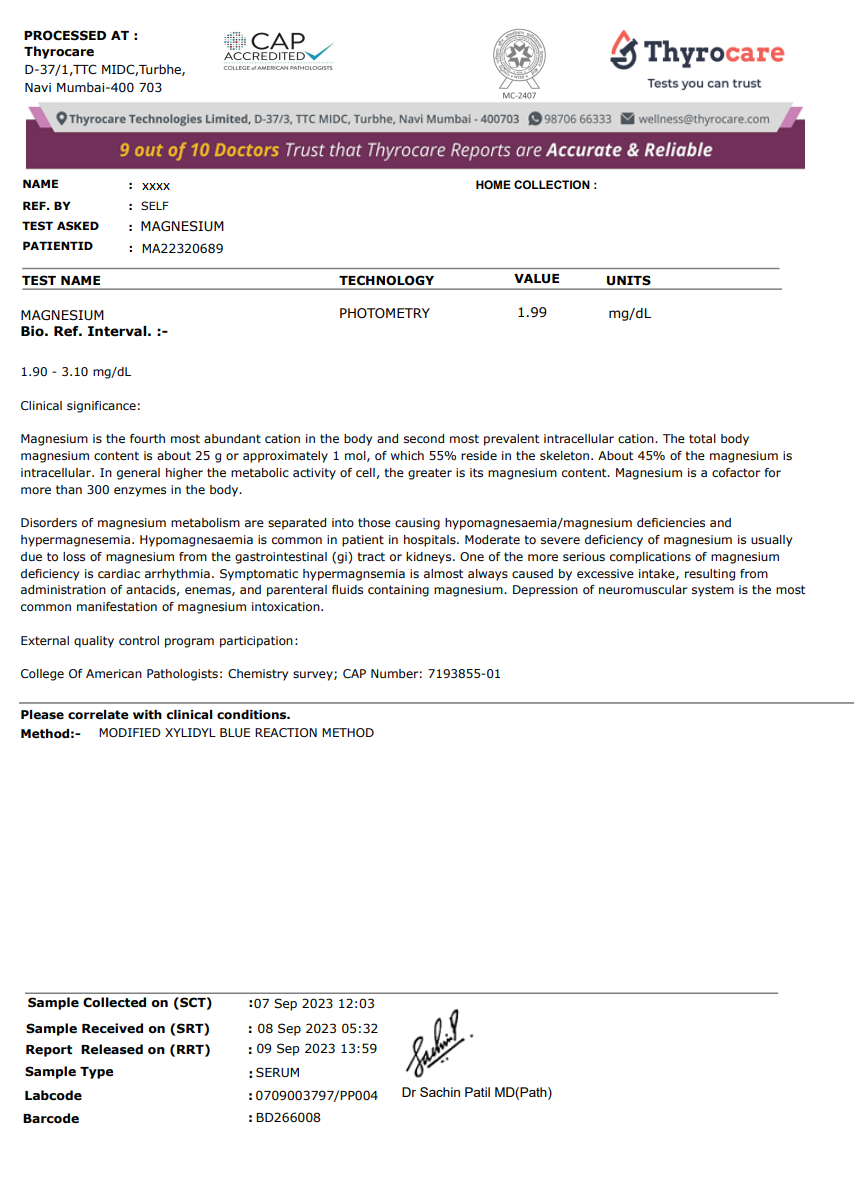
This test Checks the Level of Magnesium in the Blood which is an Important Electrolyte Needed for Proper Muscle, Nerve, and Enzyme Function
Magnesium by Thyrocare is a group test is now available at a discounted price of Rs. 541 which is inclusive of taxes. Fasting is not required Magnesium and sample can be collected at your home.


| Test Price | Rs. 541 ( Tax included ) |
| Group Name | Metabolic panel |
| Fasting | Fasting not required |
| Sample Type | Blood |
| Appointment | Online Appointment |
| Booking Procedure | Complete the form online |
| Sample Collection | Expert collect samples at Home |
| Reports | Delivered Online within 24-48 Hrs* |
| Report type | Email & Hardcopy ( On request ) |

| Conducted at | Thyrocare Labs |
| Lab Accreditation | CAP, NABL, ICMR, NGSP, ISO |
| Technology | PHOTOMETRY |
| Method | MODIFIED XYLIDYL BLUE REACTION METHOD |
| Supervision | Dr Sachin Patil MD(Path) |
| Results | Highly Specific |
Our labs work 365 days / 24 x 7 to ensure your Magnesium samples reach us the same night, before midnight. We are equipped with (MUT) - India's first preanalytical barcoded vial sorter, Sample Sorter & Aptio (Siemens).
Our IT-enabled barcoded bi-directional operating systems & world-class air logistics process your blood samples within the specified time with the utmost accuracy. Once your specimen for Magnesium is collected by our phlebotomist, Your reports will be sent to your email id within 24 to 48 hours. For hard copy requests, the reports would be delivered in 3 to 5 days. You will be informed via SMS & email once we process your report.
Get tested for Magnesium Profile at fully automated diagnostic laboratory Thyrocare which has Centralized Processing Lab (CPL) for esoteric tests and Regional Processing Labs in major cities of India.


Thyrocare Technologies Limited has huge set up covering over 2 Lakh sq. ft. floor area ensures zero error processing if approx 50 thousand specimens and over 3 lakh Clinical investigations per day is the right choice for your Magnesium Profile testing.

